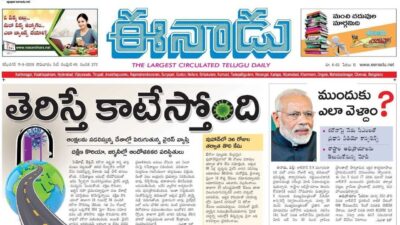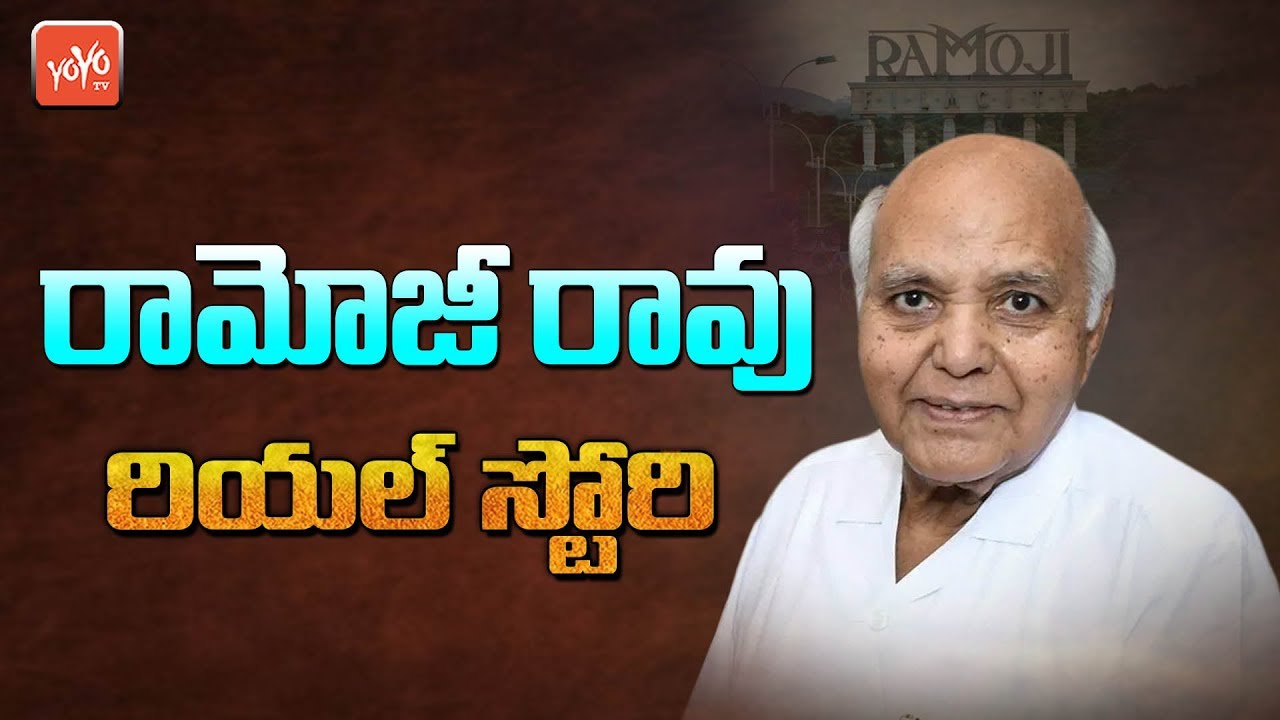Introduction The Eenadu Sunday Book has long been a celebrated companion for Telugu-speaking readers across Andhra Pradesh and Telangana. Published a
Introduction
The Eenadu Sunday Book has long been a celebrated companion for Telugu-speaking readers across Andhra Pradesh and Telangana. Published as a weekly supplement to the already dominant Telugu daily Eenadu, this Sunday Book brings a curated mix of literary content, commentary, cultural features, and entertainment. Over the years, it has evolved from a simple supplement to a standalone cultural phenomenon. Let’s explore its origins, content offerings, cultural significance, and future prospects in depth.
1. The Origins of Eenadu Sunday Book
Founded in 1974 by Ramoji Rao in Visakhapatnam, Eenadu quickly grew to become the largest Telugu daily newspaper in India . Early on, the editorial team recognized the growing demand for literary and cultural content that went beyond daily news coverage. In response, Eenadu began publishing a special Sunday supplement—what we now know as the Sunday Book.
Initially conceived as a weekend treat for casual readers, this supplement featured short stories, essays, puzzles, and literary critiques. It soon developed a loyal following, as subscribers appreciated the thought-provoking commentary, narrative diversity, and intellectual variety.
2. Content and Structure
Over time, the Sunday Book refined its content pillars to cater to a wide-ranging audience. Here’s what it typically includes:
2.1 Literary Features
- Short stories and serialized fiction: Contributions from emerging & established Telugu writers, covering both modern and traditional themes.
- Poetry: A mix of contemporary verses and classic Telugu poetry.
2.2 Essays & Commentary
- Cultural commentaries: Insightful reflections on Telugu culture, society, and heritage.
- Opinion pieces: Analysis on current affairs, educational reforms, social issues, often penned by intellectuals and academicians.
2.3 Arts & Entertainment
- Film & TV reviews: Critical assessments of Telugu cinema, including interviews with actors or directors.
- Music & performance arts: Features on traditional and contemporary musicians, dance forms, theatre groups.
2.4 Education & Young Readers
- The Sunday Book has evolved into a platform blending case studies and explanation-based writing, catering to students and competitive exam aspirants .
- A vibrant puzzles and games section includes crosswords, brain teasers, word searches—especially popular among children and families.

3. Standalone Publication
What began as a supplement has matured into a standalone publication, circulated widely on Sundays. It’s now valued independently as a weekend literary digest, available at most points of sale alongside newspapers. Its transformation echoes similar patterns in media evolution—like that of weekend editions or magazine inserts in global markets .
4. Reader Appeal and Community Building
Several factors underpin the continuing appeal of the Sunday Book:
- Intellectual Engagement
- The mix of literature, essays, and puzzles fosters an active reading experience.
- Student-focused content aids in exam preparation.
- Emotional and Cultural Resonance
- Reflections on Telugu heritage and society evoke pride and nostalgia.
- Family-Friendly Design
- Layout and topics encourage shared reading among multiple generations—parents with children, grandparents with grandkids.
- Exclusive and Varied Content
- Original stories and interviews available only in this supplement incentivize purchase.
5. Digital Transition
In recent years, digital platforms have supplemented the print editions. Apps and e‑paper services now include the Sunday Book in their weekly offerings, bridging geographic or distribution gaps . Whether accessed via a smartphone or read offline on tablets, the Sunday Book is now readily available at home or on the go—reinforcing its relevancy in a mobile age.
6. Editorial Vision
The editorial team curates each issue meticulously to ensure:
- Diversity — balancing fiction and non‑fiction, formal essays and informal commentary.
- Accessibility — simple yet engaging language ensures wide appeal.
- Relevance — tackling contemporary social issues, educational topics, and cultural milestones.
This careful balance underscores why it remains an intellectual mosaic rather than a niche publication.
7. Cultural Significance
The Sunday Book isn’t just entertainment—it’s a cultural institution. It:
- Provides a platform for emerging Telugu writers, contributing to linguistic vitality.
- Encourages critical education, offering case-based essays that sharpen analytical thinking.
- Serves as a bridge between tradition and modernity, celebrating roots while engaging with modern themes.
8. Challenges and Opportunities
8.1 Challenges
- Digital Disruption: As online platforms proliferate, print readership may decline.
- Youth Engagement: Competing with digital entertainment among younger demographics.
- Monetization Pressures: Maintaining ad revenue in a shifting media economy.
8.2 Opportunities
- Enhanced Multimedia Integration: Digital editions can incorporate audio interviews, video readings, interactive puzzles.
- Community Forums: Online platforms for reader interaction, writing contests, or feedback channels.
- Global Telugu Diaspora Outreach: Tailored digital editions for Telugus living abroad.
9. Future Outlook
Looking ahead, the Eenadu Sunday Book is likely to balance its print legacy with digital innovation. Possible directions include:
- Interactive E‑paper Editions: Clickable sections, embedded audio/video, responsive design.
- Mobile‑First Strategy: Optimized interfaces for smartphones to cater to busy, on-the-go readers.
- User‑Generated Content: Inviting readers to contribute short stories, poems, or cultural reflections.
- Academic Partnerships: Collaborations with schools and universities to use case‑study based sections in syllabus or coaching.
Conclusion
From its modest beginnings as a Sunday supplement to becoming a beloved standalone publication, the Eenadu Sunday Book has carved a unique space in Telugu media. It bridges literary culture and accessible journalism, appealing to a wide audience—from serious readers to families looking for wholesome weekend content. As it navigates the evolving media scene, the Sunday Book’s commitment to thoughtful curation, cultural depth, and intellectual enrichment will remain central to its enduring relevance.
FAQs
- What is the Eenadu Sunday Book?
A weekly published supplement of the Telugu daily Eenadu, offering a rich mix of literature, essays, puzzles, cultural features, and educational content. It has evolved into a standalone publication. - How can I get the Sunday Book?
It is available with Sunday newspaper editions in Andhra Pradesh and Telangana, sold separately at newsstands, and available digitally via e‑paper apps. - Is the Sunday Book digital?
Yes—many e‑paper platforms and official/third‑party apps offer digital versions. These are often free and feature the full Sunday Book content. - Who writes for the Sunday Book?
A mix of emerging and established Telugu writers, poets, columnists, educators, and cultural commentators contribute content. - What type of content is included?
Content spans short stories, poetry, essays, commentaries, movie and cultural reviews, puzzles, case studies, and student-focused educational material. - Can I submit my writing?
While the editorial team commissions most content, some issues invite reader submissions—such as short stories, poems, or cultural reflections. Check the official guidelines for deadlines and submission formats. - Who reads the Sunday Book?
It appeals to a diverse demographic—students, intellectuals, families, cultural enthusiasts, and casual readers interested in Sunday reading. - Is it improving youth educational outcomes?
Yes. By featuring case studies and analytical commentary, the Sunday Book supports critical thinking and exam preparation, complementing educational curricula. - How has it evolved over time?
It has transitioned from a print supplement to a standalone publication with digital availability. Content diversity, multimedia potential, and reader engagement have substantially increased. - What’s next for the Sunday Book?
Expect interactive e‑editions, mobile-first formats, greater reader collaboration, and enhanced multimedia integration, aimed at sustaining cultural relevance and reader engagement in the digital age.
Must Visit: spotlightlive




COMMENTS